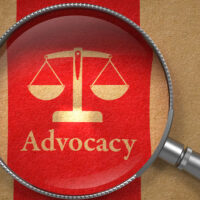What is Child Porn Distribution?

 Child porn is a serious issue in the United States. Every year, 25 million images are reviewed by the National Center for Missing & Exploited Children. Many people are unaware of the damaging effects of child porn, not only for the victim but for the viewer as well.
Child porn is a serious issue in the United States. Every year, 25 million images are reviewed by the National Center for Missing & Exploited Children. Many people are unaware of the damaging effects of child porn, not only for the victim but for the viewer as well.
While a child porn victim could be an older teen under the age of 18, many victims are young children—even babies and toddlers—who will likely face shame and embarrassment for many years. Laws are in place to protect children, and when children are sexually abused or even photographed posing nude, the adults involved can face serious punishment.
There are often two main crimes involved with child porn: viewing and distributing. The typical person involved with child porn simply enjoys looking at the images and videos, with no intent to harm children or send the videos to others. However, this is still a crime, and authorities have the ability to track a person’s internet use and see what kinds of images they downloaded or viewed.
Child porn distribution is an even more serious crime, but what exactly does it entail? Read on to learn more.
Child Porn Distribution Under Maryland Law
Under Maryland Law §11–207, child porn distribution is defined as knowingly advertising, promoting, soliciting, distributing, or intending to distribute any image, video or other form of visual representation or performance that depicts a minor engaged in sexual activity or sexual abuse. In addition, using a computer to publish images and personal information about a minor in order to encourage others to engage in sexual abuse or other type of sexual conduct is considered child porn distribution.
Distributing child porn is a lot easier than you may think. Simply emailing or texting a sexually explicit image of a child to a friend is considered child porn distribution. So is sharing a video or photo in a chat room. Even showing printed or digital photos to another person can be illegal.
When it comes to ages, though, Maryland is tricky. Under Maryland law, the age of consent is 16 years old, which means that a minor is a person under the age of 16. However, federal law defines a minor as a person under the age of 18. Therefore, it is possible for someone to face child porn distribution charges under federal law, but not state law. The penalties are typically harsher under federal law.
Contact a Maryland Criminal Defense Lawyer Today
Child porn charges come with serious penalties. Such a conviction can affect you for the rest of your life. Job opportunities, housing and schooling can all be affected, as such a charge is a felony.
You could face charges at both the state and federal levels, meaning you could potentially spend the rest of your life in prison. Seek legal help from the Columbia child pornography attorneys at the Law Offices of Todd K. Mohink, P.A. Our team will work hard to help you achieve a favorable outcome. Get started by calling (410) 774-5987 or filling out the online form. We have two locations in Maryland to serve you.
Resources:
Anne Arundel County
Empire Towers
7310 Ritchie Highway, Suite 910
Glen Burnie, MD 21061
Phone: 410-766-0113
Fax: 410-766-0270
Howard County On the grounds of Columbia Mall
30 Corporate Center
10440 Little Patuxent Parkway,
Suite 900
Columbia, MD 21044
Phone: 410-964-0050
